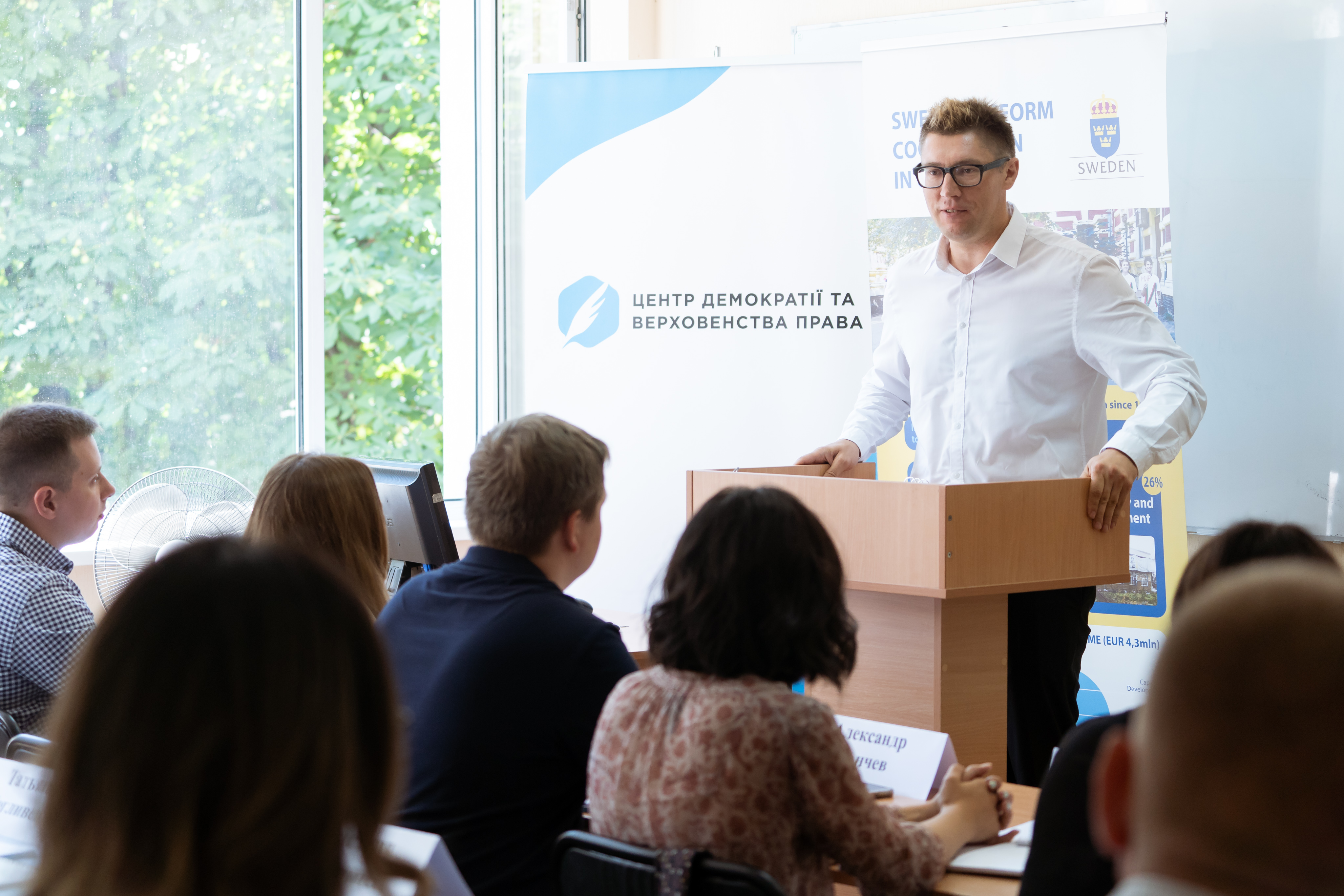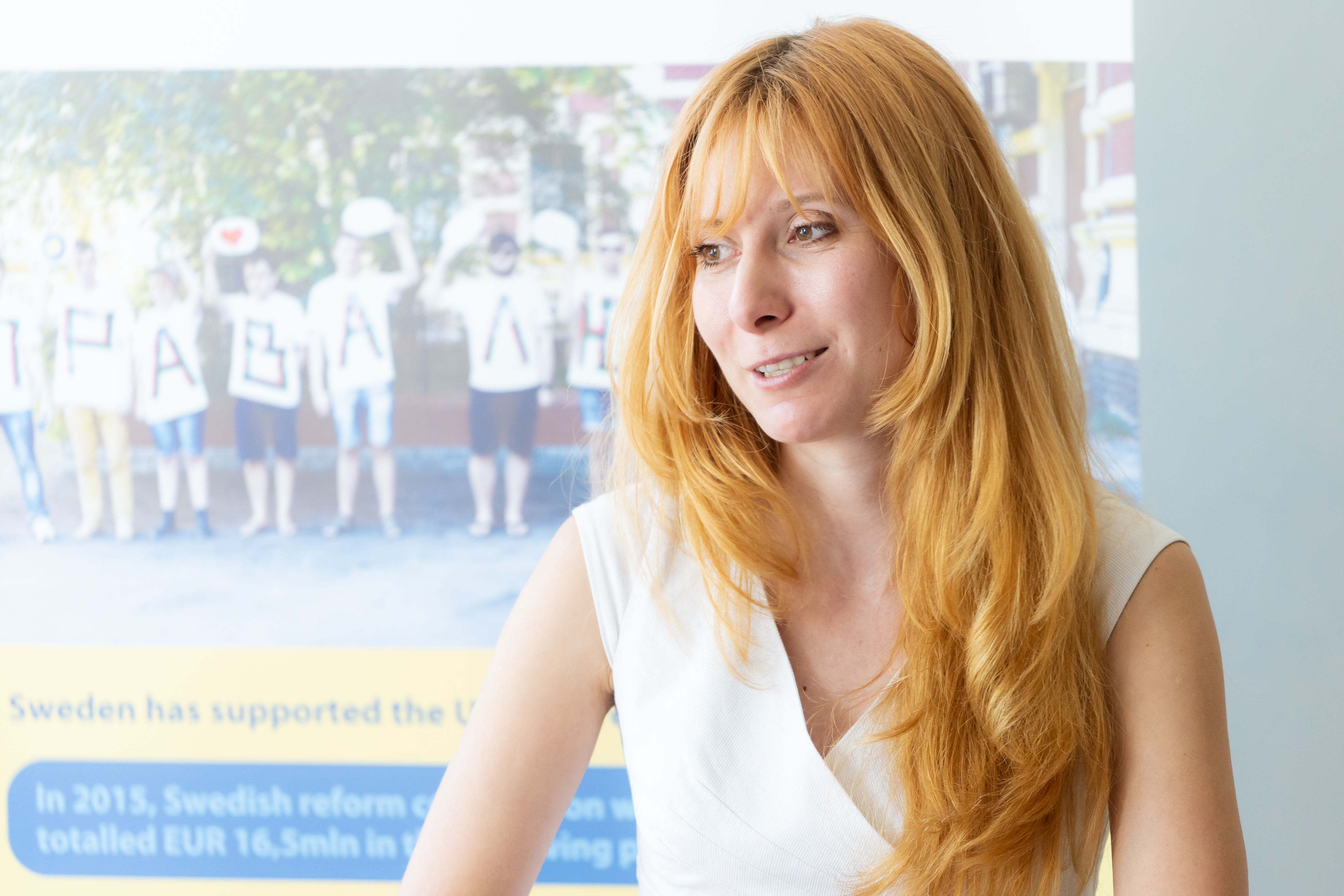On July 9, the XIV International Media School Summer Law was launched in Kyiv – an intensive training course on media law for lawyers. 22 participants from 5 countries within three weeks will receive new legal knowledge and share their own legal experience.
In her opening speech, Alina Pravdychenko, Head of Media Law at the Centre for Democracy and rule of Law, congratulated the participants on the start of an interesting and eventful study period. Representatives of partner organizations and donors noted that the level of education at school is very high, and this is proved by the fact that many graduates still work at CEDEM and are engaged in international projects.
Taras Shevchenko, Director of the Centre for Democracy and rule of Law, told the participants about the creation of the Summer School. He was inspired by the experience of studying media law at the University of Oxford, because this niche was free in Ukraine and there were practically no experts in the field of media law.
 The main objective of the training program is to transfer knowledge and practical skills in the field of media law. Therefore, lawyers advising the media and journalists, human rights activists and lawyers, experts from public organizations became the school’s participants. For them, the Summer School is an opportunity to complete training courses that are absent from the university law training program and to deepen their training.
The main objective of the training program is to transfer knowledge and practical skills in the field of media law. Therefore, lawyers advising the media and journalists, human rights activists and lawyers, experts from public organizations became the school’s participants. For them, the Summer School is an opportunity to complete training courses that are absent from the university law training program and to deepen their training.
The geography of the participants is also wide: lawyers from Ukraine, Belarus, Kazakhstan, Armenia, and Moldova study at the School. 5 participants are students who plan to work in the media in the future.
Study at the Summer School is held in an intensive format. From July 9 to July 27, participants attend daily lectures, and practical tasks are also planned.
In general, the Summer School program includes issues of ensuring freedom of speech and information (as well as a balance between freedom of speech and legal restrictions), regulation of the activities of media and journalists, protection of honor, dignity and business reputation. Lectures on public service broadcasting, privacy issues and protection of personal data, copyright are also scheduled.
The training takes place in the format of not only lectures, but also case studies: the experts, together with the participants, examine the resonant media legal situations and hold discussions. This format helps to exchange experiences – not only from different areas, but also from different countries.
During the course, international and European standards of media law will be studied separately, in particular, the European Convention for the Protection of Human Rights, the practice of the ECHR, and the UN human rights protection system. As noted by the participants themselves during the introduction, these topics are in the top of their expectations from learning.
The School’s lecturers will be experts of the Centre for Democracy and Rule of Law, Ukrainian and international organizations. In particular, Olena Demchenko, media coordinator at Detector Media, Vsevolod Rechytskyi, advisory expert of the Kharkiv human rights group, associate professor at the National Law Academy named after Yaroslav the Wise, Andrii Rikhter, senior adviser to the Office of the Representative on Freedom of the OSCE Media, Taras Shevchenko, director of the Center for Democracy and Rule of Law.
According to the organizers, the value of the Summer School lies not only in learning, but also in informal communication. School participants spend time together, go on excursions and represent their countries. This communication becomes the foundation for uniting students in a friendly community of schools.
The Summer School is implemented thanks to the support of the American people, which was provided through the United States Agency for International Development (USAID) and Internews.
The Summer School of Media Law is supported of Sweden
The Summer School is being held with the support of the Freedom of Media in Ukraine project, which is being implemented in the framework of the Good Governance joint program of the Council of Europe and the European Union Partnership.

